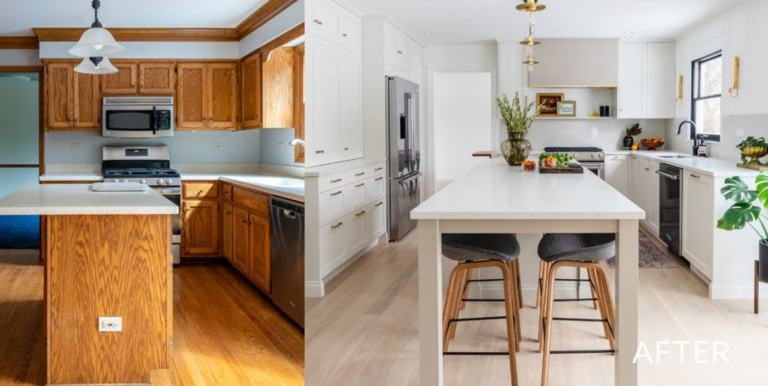Are you dreaming of owning your first house? The thought of having a place to call your own can be exciting, but it’s important to make sure you’re ready for this major milestone in your life. Determining the right time to buy a house involves considering both financial readiness and personal factors that align with your lifestyle. In this comprehensive guide, we’ll walk you through the process of when to buy your first house. Let’s roll…
Signs of Financial Readiness
Stable Job or Source of Income
When considering buying your first house, having a stable job or a reliable source of income is crucial. Lenders want to ensure that you have the means to make your mortgage payments on time. Whether you have a traditional 9-to-5 job, self-employment income, or income from a small business, having regular and steady income increases your chances of qualifying for a mortgage.
Having a Down Payment
Saving for a down payment is often one of the biggest challenges for first-time homebuyers. A down payment is a percentage of the home’s purchase price that you pay upfront. While the ideal down payment is 20% to avoid additional fees, some loan programs allow for lower down payments. It’s important to have a plan and start saving early to accumulate enough funds for your down payment.
Building Good Credit
Your credit score plays a significant role in the home buying process. Lenders use your credit score to assess your creditworthiness and determine the interest rate and terms of your mortgage. A higher credit score increases your chances of qualifying for a mortgage with favorable rates and terms. It’s essential to review your credit report, pay off any outstanding debts, and make sure your credit history is in good shape before applying for a mortgage.
Affordability
When determining when to buy your first house, it’s crucial to consider affordability beyond the mortgage payment. Additional costs such as property taxes, insurance, maintenance, and repairs should be factored in. Calculating your monthly expenses and determining how much you can comfortably afford will give you a clearer picture of your readiness for homeownership.
Debt-to-Income Ratio
Mortgage lenders also evaluate your debt-to-income ratio (DTI) to determine if you can handle additional debt alongside your existing financial obligations. DTI is calculated by dividing your total monthly debt payments by your gross monthly income. Lenders typically prefer borrowers to have a DTI of around 36% or less. Maintaining a low DTI indicates that you can manage your financial responsibilities and increases your chances of getting approved for a mortgage.

Personal Readiness
No Short-Term Plans to Move
Buying a house is a significant commitment, so it’s important to consider your plans for the future. If you have no short-term plans to move and are ready to settle down in a specific location or neighborhood, it may be a good time to buy your first house. Selling a house requires time, money, and effort, so it’s important to be prepared to stay in your home for several years to see a return on your investment.
Stability and Commitment
Homeownership comes with responsibilities, both financial and practical. Before buying your first house, assess your stability and commitment to homeownership. Owning a home requires regular maintenance, repairs, and additional expenses that come with being a homeowner. Ensure that you are ready to take on these responsibilities and have the time, resources, and dedication to maintain and care for your new home.
Desire for Homeownership
One of the most important aspects of personal readiness is your desire for homeownership. Reflect on your long-term goals and aspirations. If owning a home aligns with your vision for the future and you have a strong desire to put down roots and create a place of your own, then you may be emotionally ready to take the leap into homeownership.
Saving for a Down Payment
Saving for a down payment is a crucial step in buying your first house. Here are some strategies to help you save for a down payment:
-
- Create a budget: Evaluate your income and expenses to identify areas where you can cut back and save more.
- Set a savings goal: Determine how much you need to save for a down payment based on your target purchase price and down payment percentage.
- Automate your savings: Set up automatic transfers from your checking account to a dedicated savings account to ensure consistent savings.
- Reduce unnecessary expenses: Cut back on discretionary spending and prioritize saving for your down payment.
- Explore down payment assistance programs: Research government programs or grants that can provide assistance with your down payment.
Remember, saving for a down payment takes time and discipline. Start early and stay focused on your savings goal. The more you can save, the more options you’ll have when it’s time to buy your first house.

Checking Your Credit Score
Before applying for a mortgage, it’s important to check your credit score and review your credit report. Here’s how you can check your credit score and improve it if needed:
- Obtain a free credit report: Visit annualcreditreport.com to request a free credit report from each of the three major credit-reporting agencies.
- Review your credit report: Check for any errors or discrepancies in your credit report and dispute them if necessary.
- Pay off outstanding debts: Reduce your credit card balances and address any overdue payments or collections to improve your credit score.
- Avoid new credit applications: Limit new credit applications or opening new lines of credit before applying for a mortgage, as this can temporarily lower your credit score.
Improving your credit score takes time, so it’s essential to start early and make responsible financial decisions. A higher credit score can increase your chances of qualifying for a mortgage with better terms and interest rates. Take our credit readiness questionnaire to see how prepared you are!
Getting Pre-approved for a Mortgage
Obtaining a pre-approval for a mortgage is an important step in the home buying process. Here’s what you need to know:
- Gather your financial documents: Prepare documents such as pay stubs, W-2 forms, tax returns, bank statements, and any other financial information required by the lender.
- Research and compare lenders: Shop around and compare mortgage lenders to find the best terms and interest rates that suit your financial needs.
- Meet with a loan officer: Schedule a meeting with a loan officer to discuss your financial situation, provide the necessary documents, and start the pre-approval process.
- Provide accurate information: Be transparent and provide accurate information about your income, assets, and debts to ensure an accurate pre-approval.
Getting pre-approved for a mortgage gives you a clear understanding of how much you can afford and strengthens your position as a serious buyer when making offers on properties. It’s an essential step in the home buying process.

Finding the Right Professionals
Buying your first house involves working with a team of professionals who can guide you through the process. Here are the key professionals to consider:
Real Estate Agent
A reliable real estate agent can help you navigate the home buying process and find properties that meet your criteria. They will assist you in negotiating offers, handling paperwork, and guiding you through the closing process. Choose an agent who understands your needs and has experience working with first-time homebuyers. For example, you can reach out to the LeaderOne Financial Roller Mortgage Team for their expertise in the mortgage industry.
Financial Advisor
If you have complex financial situations or want guidance on managing your finances for homeownership, a financial advisor can provide valuable insights. They can help you understand the financial implications of buying a house and assist in creating a comprehensive plan for achieving your homeownership goals.
Loan Officer
A loan officer will work with you to understand your financial situation and guide you through the mortgage application process. They will help you choose the right mortgage product, explain the terms and conditions, and assist you in completing the necessary paperwork.
Real Estate Attorney
A real estate attorney specializes in legal matters related to property transactions. They can review contracts, ensure legal compliance, and protect your interests during the home buying process. Their expertise is especially valuable during the negotiation and closing stages.
Title Insurance Representative
A title insurance representative ensures that the property you’re buying has a clear title and is free from any legal issues or claims. They conduct a thorough title search and provide insurance to protect you against any unforeseen issues with the property’s ownership.
Home Inspector
A home inspector assesses the condition of the property and identifies any potential issues or repairs that need to be addressed. Hiring a qualified home inspector is crucial to understanding the property’s condition and making informed decisions before finalizing the purchase.
Working with a team of professionals ensures that you have expert guidance throughout the home buying process, giving you peace of mind and confidence in your decisions.
FAQs
How much should I save for a down payment?
The ideal down payment is 20% of the home’s purchase price to avoid additional fees. However, some loan programs allow for lower down payments, such as 10%, 5%, or even 0% for certain types of mortgages. Determine the down payment amount based on your target purchase price and explore loan programs that align with your financial situation.
Can I buy a house with bad credit?
Having bad credit can make it more challenging to qualify for a mortgage, but it’s not impossible. There are loan programs specifically designed for individuals with less-than-perfect credit. However, these loans often come with higher interest rates and stricter requirements. Working on improving your credit score and seeking professional guidance from a loan officer or credit counselor can help you navigate the process.
How long does it take to buy a house?
The time it takes to buy a house can vary depending on various factors, such as the local market conditions, availability of properties, and your preparedness. On average, the process can take anywhere from several weeks to a few months. Factors such as finding the right property, negotiating offers, completing inspections, and securing financing can impact the timeline.
What are closing costs?
Closing costs are fees and expenses associated with the final stages of the home buying process. These costs include loan origination fees, appraisal fees, title insurance fees, attorney fees, and other charges. It’s important to budget for closing costs, as they typically range from 2% to 5% of the purchase price.
Should I buy a house or continue renting?
The decision to buy a house or continue renting depends on your individual circumstances and goals. Buying a house offers the opportunity to build equity and potentially see a return on investment. However, renting provides flexibility and freedom from the responsibilities of homeownership. Consider factors such as your long-term plans, financial stability, and personal preferences when making this decision.
How does the home buying process work?
The home buying process involves several steps, including saving for a down payment, obtaining pre-approval for a mortgage, finding a real estate agent, searching for properties, making offers, completing inspections, securing financing, and closing the deal. Each step requires careful consideration and collaboration with professionals to ensure a smooth and successful home purchase.
The LeaderOne Lowdown on When to Buy Your First House
Buying your first house is an exciting milestone, but it requires careful consideration and preparation. By assessing your financial readiness, personal circumstances, and working with a team of professionals, you can make an informed decision about when to buy your first house. Remember to save for a down payment, maintain good credit, get pre-approved for a mortgage, and find professionals who can guide you through the process. With the right preparation and support, you’ll be well on your way to achieving your dream of homeownership.




